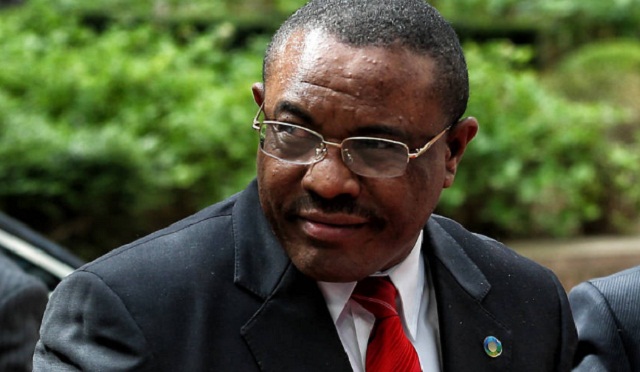
Addis Ababa, Ethiopia | AFP | Ethiopian Prime Minister Hailemariam Desalegn resigned Thursday after long-running political turmoil, in an unprecedented move in the vast East African country.
The decision by Hailemariam, in power since 2012, comes after months of escalating anti-government protests and signs of growing splits within the ruling coalition.
Hailemariam said he had worked hard to solve Ethiopia’s problems, but that he believed his resignation was also part of the solution.
“We know that we are in the process of achieving these reforms,” he told the Ethiopian Broadcasting Corporation.
“I myself, want to become part of the solution.”
The ruling Ethiopian People’s Revolutionary Democratic Front (EPRDF) and government “will make history again by conducting a peaceful power transition in our country,” he added.
Hailemariam will remain in office until parliament and the EPRDF coalition confirm his resignation. It remains unclear who will take over.
The streets of the capital Addis Ababa were calm following the surprise announcement.
Ushered into office after the death of former prime minister Meles Zenawi, a one-time Marxist who had led the rebellion that overthrew the Communist Derg regime, Hailemariam transformed from a relatively little-known politician into a technocrat and influential leader.
While Ethiopia is one of Africa’s poorest countries, Hailemariam continued a streak of rapid economic growth.
Unlike many in the ruling elite, Hailemariam was not part of the rebel movement which toppled the Derg. Instead he was studying civil engineering in Addis Ababa and completing a master’s degree at Finland’s Tampere University when the dictator fell.
– Political divisions –
Political analyst Hallelujah Lulie said the seeds of Hailemariam’s departure were sown in 2015, when anti-government protests erupted that led to hundreds of deaths and prompted the government to impose a 10-month state of emergency in October 2016.
While the decree halted the unrest, protests still erupted occasionally and the upheaval exposed divisions within the four ethnically based parties that under the EPRDF umbrella have ruled Ethiopia since 1991.
“There’s a general consensus that the way he handled the crises was not all that good,” Hallelujah said.
“The divisions within the EPRDF did not heal, and we can’t tell whether they’re going to be healed or not,” he added.
 The Independent Uganda: You get the Truth we Pay the Price
The Independent Uganda: You get the Truth we Pay the Price



